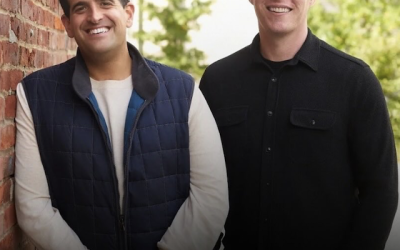The established TV industry is peering at the rise of vertical drama with a wary curiosity. Short, serialised stories produced at breakneck speed for mobile-native platforms hardly fit the traditional idea of premium storytelling. Yet judging by the mood inside the BFI Southbank at the TellyCast Digital Content Forum, that scepticism is evaporating fast.
What emerged from the panel discussion Micro Drama: Fad or the Future? is that the debate has already moved on; the creators now shaping the category consider it simply the next frontier of digital-first IP. Whether the established sector is ready or not, this new form of rapid-fire, mobile-native drama is attracting investment, new talent and serious creative ambition. And the people making it insist it is only just beginning.
Spirit Studios’ creative director, Matt Campion, is one of the UK’s early adopters. Spirit, already adept at straddling TV, podcasts and social video, slid into vertical drama after a breakthrough audio project and a short-form sitcom for Channel 4. Now they are preparing their first fully fledged micro drama, developed in partnership with Night Train/ Eccho Rights and built with the same speed-to-market mindset that has underpinned the company’s social-video success. “Eight weeks from start to finish,” Campion said, outlining a production rhythm that would make traditional drama producers faint.
For Spirit, the model mirrors the wider digital-first playbook: ship quickly, learn fast, iterate constantly. He freely admits the team is leaning into what already works on the major apps, where American audiences still favour a heightened, often melodramatic sense of British period culture. The first Spirit project blends modern-day characters with a time-machine twist into an imagined world of old-school public schools and Pride and Prejudice-esque tropes. But if the genre sounds familiar, the machinery behind it is anything but.
Campion’s writing and directing bench now includes Dan Lowenstein, who has already chalked up around 25 micro dramas, and Jack Chalmers, a 22-year-old TikTok creator with four million followers who rose to prominence by recreating Hollywood scenes from his bedroom with obsessive audio detail – right down to sampling the hum of his fridge. His ability to think natively in vertical form, Campion said, is now central to the show’s creative DNA.
Where Spirit represents a next generation indie moving into new terrain, TheSoul Publishing is approaching micro drama from a slightly different direction. The group is already one of the world’s largest digital studios, born on social platforms and built through global data and scaled content systems. For them, micro drama is an extension of the creator economy, not a departure from it.
Executive of External Strategy Victor Potrel explained that the company started tracking the format two years ago, identifying early momentum before committing firmly at the start of this year. The result is now fully-fledged vertical-drama app SHRT, carrying more than 30 shows, produced through a hybrid model of in-house series and co-productions with independent makers. Romance remains the dominant global genre – the CEO-and-intern fantasy is still drawing audiences in the millions – but Potrel described a format expanding steadily into fantasy, thriller and other more ambitious genres.
Production timelines are startling in their efficiency. Writers’ rooms operate continuously, scripts turn around in one to two months, and shoots are compressed into as little as a week with teams as lean as three to five people. The real alchemy, though, lies in the edit. Micro drama requires a major hook every 45 to 60 seconds, a structural inversion of television’s long-form arcs. Cliffhangers, accelerated emotion and relentless retention triggers are baked into the craft. “People watch between shifts, on commutes – busy, young audiences,” Potrel noted. This is drama engineered for the most distracted viewer in screen history.
Crucially, TheSoul’s app is monetised. Users buy additional episodes or subscribe through what Potrel described as a gamified interface more akin to Candy Crush than Netflix. Virtual currency, in-app upsells, reward mechanics and behavioural nudges are part of the economic engine. For all the creative excitement, this is still a numbers business – and the early numbers suggest the model works.
If Spirit and TheSoul represent two ends of the spectrum, Metrotone Media – run by writer-director-producer Katharina Gellein Viken – sits squarely in the middle, with both indie sensibility and digital-first instincts. Her company pivoted to becoming “AI-native” two years ago, a move that now underpins its animated vertical series Rainmaker, a K-pop-inflected crime thriller built through hybrid production methods. What began as a music-video-driven experiment has now grown into a 22-episode run backed by new partners after a strong audience response and a showcase invitation from BFI.
Metrotone is simultaneously shooting a live-action mockumentary with three major comedy figures, inspired by the mid-2010s HMRC tax-incentivised gangster-film boom – a period Viken recalls firsthand, having been repeatedly cast as the “token blonde” in some of the era’s more eccentric micro-budget productions. The new series blends real-life absurdity with creator-led performance, designed natively for vertical platforms.
Yet Viken’s biggest concern is platform fit. TikTok, YouTube Shorts and dedicated vertical-drama apps each reward different storytelling patterns. The sector is maturing fast, but it is far from unified. What thrives on RealShort may flop on YouTube. Genres like Rainmaker do not neatly fit the romance-heavy ecosystems currently driving app engagement. She also pointed to emerging US-based players such as Alchemy Stream – bringing AI-assisted short-form programming directly to TV screens – as evidence that micro drama may soon evolve beyond mobile.
Across the panel, AI was acknowledged as an increasingly important tool, but none of the speakers saw it as a creative replacement. Its real value sits in speeding up visualisation, enhancing production efficiency and enabling animation pipelines that would have been financially impossible even two years ago. But all three insisted that AI-generated scripts are a line not to cross – both for reasons of quality and intellectual-property protection.
And then there is the economics. Budgets typically fall between £100,000 and £300,000 per series, depending on complexity – far below TV drama, far above creator-led social video. Monetisation strategies range from app-based episode purchases to subscription funnels and brand integrations. Early results are striking: one of Lowenstein’s shows continues to trend 18 months after release, drawing 150 million views, while average user spend sits around 50p per episode before rising into double-digit totals over a series. For a genre that barely existed three years ago, these economics look more like a new mid-tier content ecosystem than a passing trend.
By the end of the session, the answer to the panel’s guiding question – fad or future? – felt obvious. Campion sees an imminent genre explosion, with reality formats and other vertical-native hybrids following close behind drama. Potrel predicts rapid investment, consolidation and localisation, with France, Germany and others developing their own micro-drama infrastructures. Viken argued that creators now need to bake multi-format thinking into development from day one, designing stories that work in vertical and horizontal simultaneously.
For all three, this is not an experiment. It is the early phase of a new model: one shaped by lean production, audience-first data, digitally fluent creators and monetisation logic drawn as much from gaming as from television.
The rest of the content industry is beginning to sit up and pay attention.




